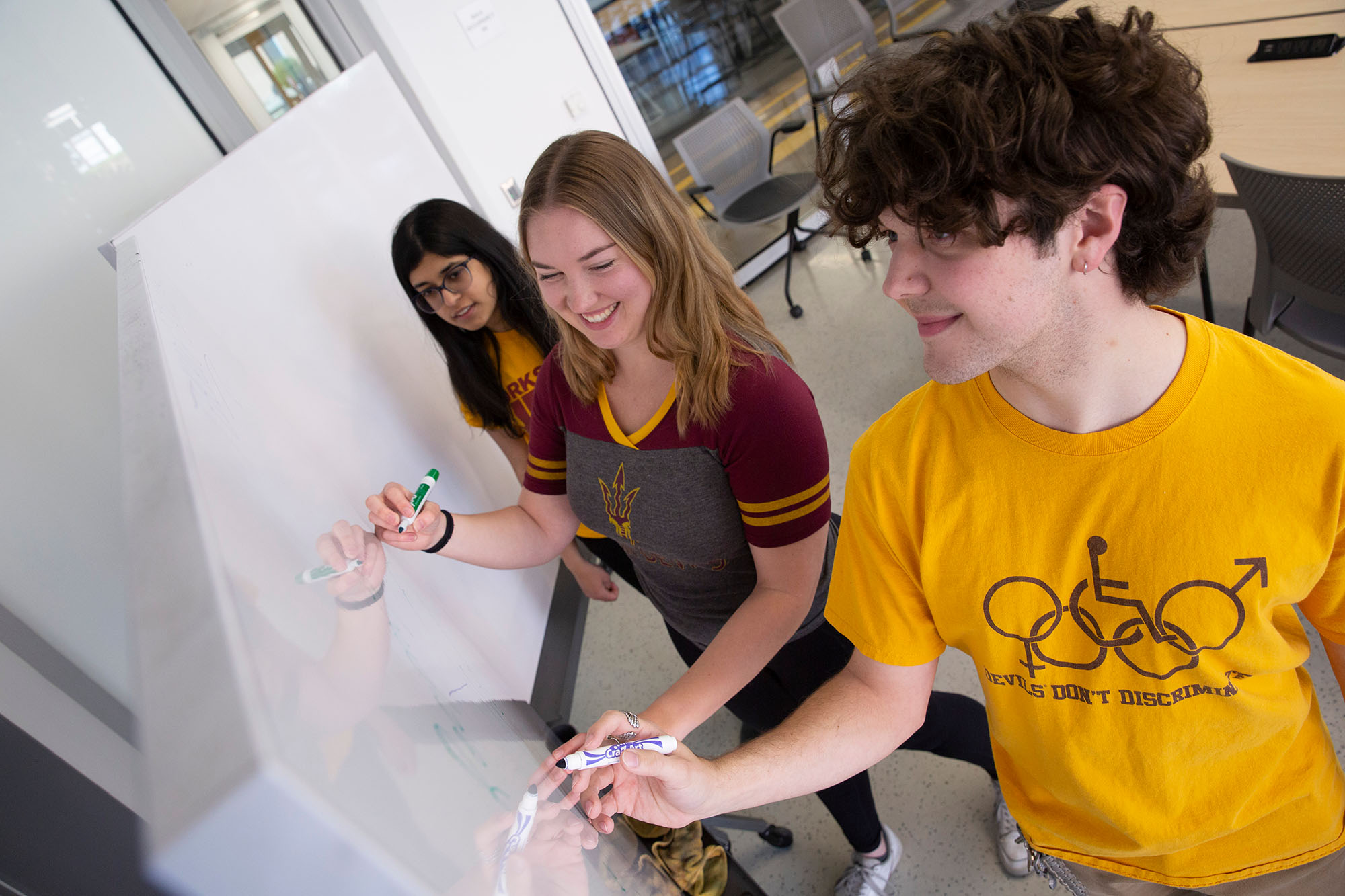
Undergraduate Teaching Assistants
The Undergraduate Teaching Assistant (UGTA) and ASU 101 Section Leader (SL) program(s) select successful undergraduate students to serve as teaching assistants in a variety of classes offered by the Fulton Schools.
As a UGTA or a Section Leader, you will assist faculty members with exploratory and collaborative learning activities for introduction to engineering courses such as ASU 101, FSE 100, and EGR 101 as well as some of the content courses.
UGTAs and Section Leaders help first-year students adjust to university life by guiding them, boosting their confidence, serving as successful role models, and providing academic help and advice in class.
This program gets results
The UGTA and ASU 101 Section Leader programs provide numerous advantages. By participating, you can:
- Improve communication and leadership skills
- Gain a deeper understanding of working in academia
- Develop a working relationship with a faculty member and connect with students in your program of study
- Earn valuable experience for your resume
- Receive a stipend payment at the end of your assignment

Responsibilities
Undergraduate Teaching Assistants
- Spend 5 hours a week supporting your assigned course.
- Regularly meet with your faculty member to prepare for course activities and assignments.
- Enroll in and complete a UGTA-specific training course each semester
Section Leaders
- Spend 3 hours a week supporting your assigned course.
- Attend each scheduled lecture of ASU 101.
- Participate in classroom activities and discussions.
- Act as a Peer Mentor and provide students with your experience as a Fulton student.
- Facilitate the Fulton Difference lecture in-class.
- Meet with students individually to discuss assignments and create a 2-year plan.
- Enroll in and complete a Section Leader specific training course each semester.
Qualifications
To become a UGTA or Section Leader, you:
- Must be classified as a sophomore, junior, or senior.
- Must be a currently enrolled Fulton Undergraduate student to be placed as a Section Leader.
- Must be in good academic standing with no active Academic Integrity Policy violations.
- Must have completed the course they are assigned to as a Section Leader with a grade of a ‘B’ or higher.
Steps to apply
Submit an application to the UGTA/Section Leader portal.
Please keep in mind that not all students will be offered a position. We recommend reaching out to a faculty member to have them request you as their UGTA.
Students offered a position or course assignment will receive an email with an Offer Letter.
Follow the instructions on the Offer Letter received to accept your offer. A signed and completed Offer Letter is required to be hired for each course you are offered.
Once you have accepted a position, you will need to apply to the Student Employment Office.
You must submit BOTH applications to be formally hired and accept your assigned position.
For more information
Program email
For additional questions and program related information, reach out to [email protected].